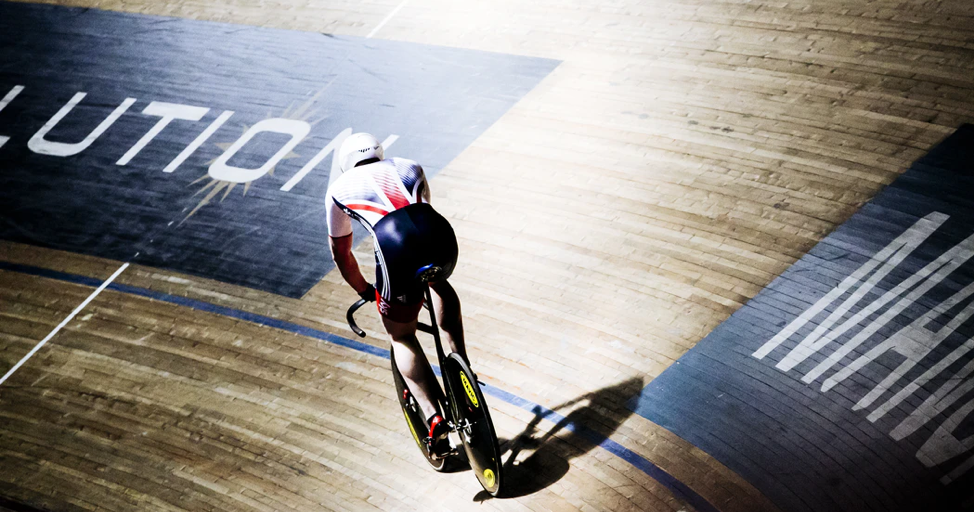We never hear someone say, “I sort of fell into the Olympics,” or “I dabbled in tennis and managed to win the US Open.”
Those words aren’t uttered because those types of wins never happen. Mastery shines only upon those willing to make sacrifices—it’s not for the half-committed or impatient. At the same time, there’s nothing mystical about it. All masters start from the same point: commitment.
Like us, even the most legendary masters were once beginners. And like them, we too can commit to the path of mastery by adopting their attitude, efficiency, and relentless work ethic.
If you want to commit to the path of mastery, here’s what it looks like to take your first step.
Develop the Attitude of a Master to Become One
Michael Phelps’ coach, Bob Bowman, used to tell him: “Are you going to wait until after you win your gold medal to have a good attitude? No. You’re going to do it beforehand.”
This change in attitude starts from deciding to become a master and committing to the process. Without making this long-term commitment, the path of mastery will elude us. No one becomes a master by chance; all great athletes, artists, and communicators have devoted themselves to their craft.
“Success is no accident,” the soccer great Pelé said. “It is hard work, perseverance, learning, studying, sacrifice.” There are no shortcuts to mastery, and no one else can do it for us. Everyone who has made it to the top in any field had to spend endless hours learning and refining their skill.
This is why developing the attitude of a master means being willing to put in the time and energy for as long as it’s necessary to achieve our goals. It also means that even if we take longer than others, or we have to put more effort than anyone else, we are still willing to do it.
We must ask ourselves only one question before going down the path, “Do I want this?” If the answer is yes, we must commit to the path, adopt the attitude, and ignore everything else.
Become Efficient to Achieve More, Not to Do Less
Though commitment means being willing to put in as much time and effort as necessary to reach our goals, it doesn’t mean we shouldn’t look for ways to optimize our approach. If we don’t optimize, we won’t make the most of the time and effort we apply toward our craft—we might never even reach mastery.
However, masters, and aspiring ones, must look at efficiency with a different mindset. Most of us think of efficiency as ways to minimize time and effort and still get results. We want the fastest, easiest approach so we can do less.
Masters pursue efficiency to get more out of the time and energy they already put in. Their focus is on maximizing results, not on minimizing effort. Again, committing to the path of mastery is never about finding the minimum that makes the cut (and optimizing to reduce time further), but about getting the most out of the time and energy we are already committing.
Walk the Path One Day at a Time
Perhaps the hardest part of committing to the path of mastery is showing up to do the work day after day, even when the craft doesn’t feel enjoyable. Every master struggles with motivation at times, but they also push through the discouragement and do the work anyway.
For example, champion runner Usain Bolt said, “There’s times when you are running and you just want to stop, you just wanna give up, like, to hell with this I just wanna go home.” Bolt kept showing up every day for years, even when his “conscience” would tell him, “Don’t do it, stop running, retire.”
That’s the “secret” of masters and the core of what it means to commit to the path: relentless work ethic. Masters show up every day and do the work.
Mastery Never Happens by Chance
Remember, nobody stumbles upon greatness. Athletes, artists, musicians—every master got to where they are because they honored their commitment to their craft, even when they wanted to quit. They paid for their success in sweat on the tennis court, hours sacrificed with friends and family to spend in the rehearsal room, and the mental anguish of losing more times than most people ever try.
If we want to become masters, there’s no way around it: we need to adopt the attitude of a champion, make the most of our time, and put our commitment to the path above everything else. Through it all, we need to never stop striving for improvement. That’s the price every master in history has paid, and it’s the one you’ll have to pay to achieve greatness, too.
